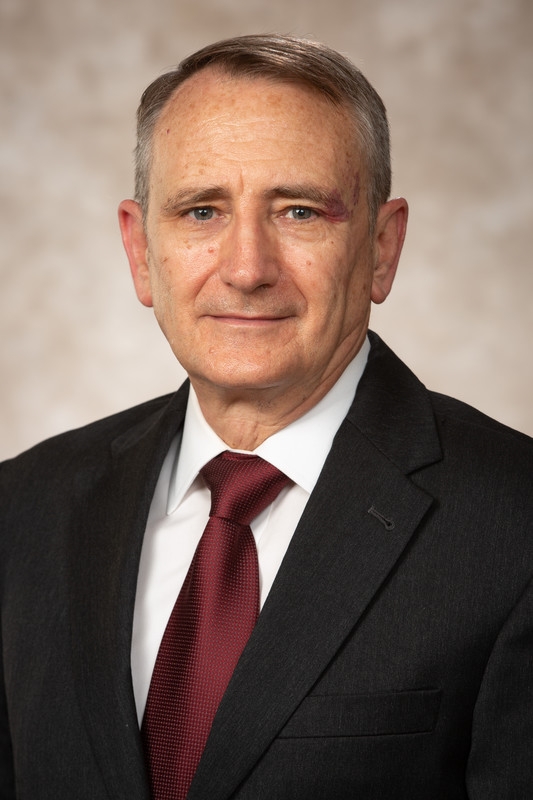FAYETTEVILLE, Ark. – Richard Ashworth has been named director of Environmental Health and Safety effective Feb. 1, 2021. His promotion is part of continued efforts to support research and safety programs across campus.
As director, Ashworth will continue his efforts to build relationships with the campus and research community. His group will focus their attention this coming year on enhancing the campus safety culture and improving hazard and near miss reporting.
While the Environmental Health and Safety unit reports directly to Facilities Management, its operations serve all areas of campus including education, research and auxiliary activities. With the expanding student population and advancement of research programs, it is crucial that the appropriate level of EHS oversight and collaboration is provided.
Mike Johnson, associate vice chancellor for facilities, believes that the promotion of Ashworth to director and slight reorganization of Environmental Health and Safety will allow the team to better serve the campus.
"Richard and EHS have already made great strides in improving the safety programs on campus," Johnson said. "This new alignment will improve the team's overall effectiveness and send a strong signal to the entire university that we take our safety-first commitment to our campus seriously."
Ashworth began his career with the University of Arkansas in 2017 as the associate director of Environmental Health and Safety. During that time, he has worked to shift EHS from a compliance centered focus to one of collaboration. He believes it is imperative that the EHS office works with faculty, staff, and students to balance competing priorities while providing excellence in occupational health and safety.
"We will continue to create a sense of cooperation and partnership with the campus community and seek continuous improvement in our occupational health and safety programs," said Ashworth. "Ultimately, student success and research advances cannot be achieved without safe and healthy environments that enable academic progress and discovery."
Prior to joining the university, Ashworth spent 33 years serving in various EHS positions within the United States Air Force and Army. His time with the Air Force included serving as the Air Force Surgeon General's bioenvironmental engineering consultant and leading the Air Force's groundwater remediation research and development program. He has also served as the chief of Bioenvironmental Engineering Services at the Air Force Medical Center in Wiesbaden, Germany, acted as the environmental engineering consultant to the Air Forces in Europe, and headed the largest Pollution Prevention program in the Air Force. He followed that with an assignment where he commanded the Air Force's Environmental Health and Safety Laboratory providing EHS consulting and analytical services throughout the Pacific theater. He also served as an Associate Dean and Department Chair within the Air Force School of Aerospace Medicine.
Ashworth holds bachelor's and master's degrees in civil engineering and a doctorate in engineering from the University of Arkansas. He is also a registered professional engineer.
Environmental health and safety
Environmental Health and Safety provides campuswide support in the areas of chemical, biological and radiological hazard identification as well as risk mitigation, fire and life safety, occupational health, and safety surveillance. Working in collaboration with the Provost Safety Committees, including the Toxic Substances, Radiation Safety, Institutional Biosafety, and Health and Occupational Safety committees, Environmental Health and Safety assists and provides tools for principal investigators to develop research protocols and procedures that minimize hazards and eliminate adverse exposures.
These efforts directly support student success by executing programs focused on providing healthy, educational spaces and enhancing wellbeing on campus. EHS programs produce safe and healthy occupational environments that support teaching, learning, research, and discovery which enables academic pursuit.
Contacts
Breanna Lacy, communications coordinator
Facilities Management
479-575-6044, bllacy@uark.edu
